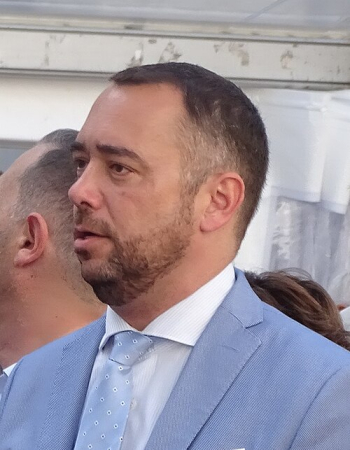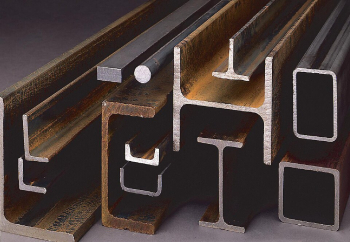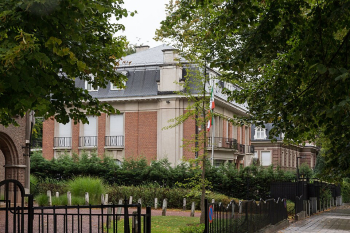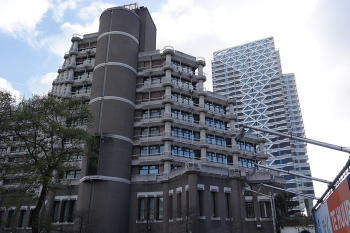
On 1 January 2023 Croatia will adopt the euro as its currency and will fully join the Schengen area. This marks an important milestone in the history of Croatia, of the euro and
Schengen areas and of the EU as a whole. It follows a period of intensive preparation and substantial efforts by Croatia to meet all the necessary requirements.
The Commission has fully supported Croatia in the process of joining the euro and Schengen areas. With Croatia, 20 EU Member States and 347 million EU citizens will share the EU's common currency. As for Schengen, this is the eighth enlargement and the first after 11 years.
The euro will deliver practical benefits to Croatian citizens and businesses. It will make travelling and living abroad easier, boost the transparency and competitiveness of markets, and facilitate trade. Euro notes and coins will also become a tangible symbol for all Croatians of the freedom, convenience and opportunity that the EU makes possible. Public support for the euro in the euro area remains very strong, with broad majorities of EU citizens believing the euro is a good thing for the EU as a whole and for their own country.
The Schengen area allows 420 million people to travel freely between member countries without going through border controls. It allows to develop a common, shared responsibility for controlling the external borders of the Union and the responsibility to issue common Schengen visas. Above numbers, for more than 35 years now Schengen has been an area of values, freedom, security and justice. Especially in the current geopolitical and economic context, the Schengen area is instrumental to stability, resilience and recovery.
Introducing euro cash
From Sunday, 1 January 2023, the euro will gradually replace the kuna as the currency of Croatia. In line with a consistent record of exchange-rate stability, the kuna will be exchanged at a conversion rate of 1 euro for 7.53450 Croatian kuna. The two currencies will be used alongside each other for a period of two weeks. When receiving a payment in kuna, the change will be given in euro. This will allow for a progressive withdrawal of the kuna from circulation.
The dual display of prices in kuna and euro became compulsory on 5 September 2022 and will apply until 31 December 2023. In order to protect consumers and address their concerns about unjustified price increases in the changeover period, a Business Code of Ethics has been introduced to ensure stability of prices for goods and services by helping businesses to correctly recalculate and display prices. Businesses who sign up to the initiative can display its logo to reassure customers, and will lose this right if found to be in breach of the Code. The Code of Ethics is enforced by the State Inspectorate, which will also monitor the prices of frequently-purchased products and services during the changeover.
Commercial banks have received euro banknotes and coins in advance from the Croatian National Bank and have in turn supplied euro cash to shops and other businesses. Kuna banknotes and coins can be exchanged for euro banknotes and coins at the Financial Agency and post offices until 30 June 2023. The exchange is free of charge. The exchange of kuna banknotes and coins at commercial banks is possible until 31 December 2023. It is free of charge for all exchanges done before 1 July 2023 up to a limit of 100 kuna banknotes and 100 kuna coins. For changes as of 1 July 2023, commercial banks can charge a fee. Croatia's national central bank will exchange kuna banknotes without a time limit, and kuna coins until 31 December 2025. This service is free of charge.
70% of automatic teller machines (ATMs) in Croatia will distribute euro banknotes already on 1 January 2023, and the rest will follow as soon as possible thereafter (within two weeks). To facilitate the process, commercial banks will publish online information on which ATMs distribute euro.
Schengen area
The Schengen area is one of the main achievements of the European project. It started in 1985 as an intergovernmental project between five EU countries – France, Germany, Belgium, the Netherlands and Luxembourg – and has gradually expanded to become the largest free travel area in the world.
An enlarged Schengen area without internal border controls will make Europe safer, through reinforced protection of our common external borders and effective police cooperation; more prosperous, by eliminating time lost at borders and facilitating people and business contacts; and more attractive, by significantly expanding the world's largest common area without internal border controls.
Since its accession to the EU in 2013, Croatia has applied parts of the Schengenacquis, including those related to the external border controls, police cooperation and the use of the Schengen Information System.
The remaining parts of the Schengenacquis, which include the lifting of controls at internal borders and related measures, will become applicable as of 1 January 2023: checks at internal land and sea borders between Croatia and the other countries in the Schengen area will be lifted. Checks at internal air borders will be lifted from 26 March 2023, given the need for this to coincide with the dates of the International Air Transport Association (IATA) summer/winter time schedule.
In line with the Schengen Evaluation and Monitoring Regulation, Croatia will be evaluated within one year from the date of the full application of the Schengenacquis. This Regulation was recently reformed to strengthen the evaluation of the respect for fundamental rights under the Schengenacquis.
Background
In its 2022 Convergence Report, the Commission concluded that Croatia met the criteria for adopting the euro. This assessment was supported by the European Central Bank's own Convergence Report. In July 2022, EU Finance Ministers took the formal decision that opened the way for Croatia's adoption of the euro.
The Croatian authorities have undertaken extensive preparations for the country's entry into the euro area by implementing their national changeover plan, providing all the details for the organisation of the introduction of the euro and the withdrawal of the kuna.
The core principle of Croatia's national changeover plan is consumer protection. Mechanisms for building a safe environment for consumers have been thoroughly planned under four pillars: the Code of Ethics, the price monitoring of goods and services, the supervision of traders and service providers, and the dual display of prices.
Many retailers, public companies and service providers have signed up to the Code of Ethics launched by the authorities to ensure that the conversion of prices to euro is done fairly and without abusive price increases. The dual display of prices became compulsory on 5 September. It will end 12 months after the date of the introduction of the euro (31 December 2023). The prices of 103 predefined frequently purchased products and services are being monitored during the changeover.
The “Euro Law” provides the Code of Ethics with the necessary regulatory framework. It designates the State Inspectorate as the main body for price monitoring and control and includes provisions on the correct dual display of prices, the respect of the rounding rules, and the correct application of the conversion rate. In case of infringement of the provisions of the “Euro Law”, the State Inspectorate can first issue orders to the traders or economic operators to address the non-compliance; the next step will be to impose penalties. In parallel and if necessary, consumer associations will publish "blacklists" of business entities that violate the principles of the Code of Ethics.
The preparations for the changeover have been complemented by a comprehensive communication campaign by the Croatian authorities. The Commission and the European Central Bank have contributed to these efforts.
Regarding the Schengen accession, already in December 2021 the Council confirmed that Croatia had fulfilled the conditions to join the Schengen area. The evaluation process took place from 2016 to 2020. It included a successful targeted verification visit in 2020 to verify the implementation of actions in external border management. This came after the Commission confirmed that Croatia successfully completed the Schengen evaluation process in 2019. Photo by Petr Vilgus, Wikimedia commons.
















